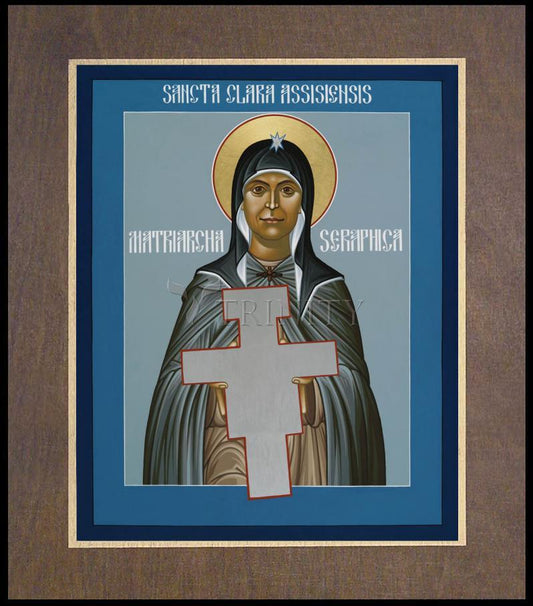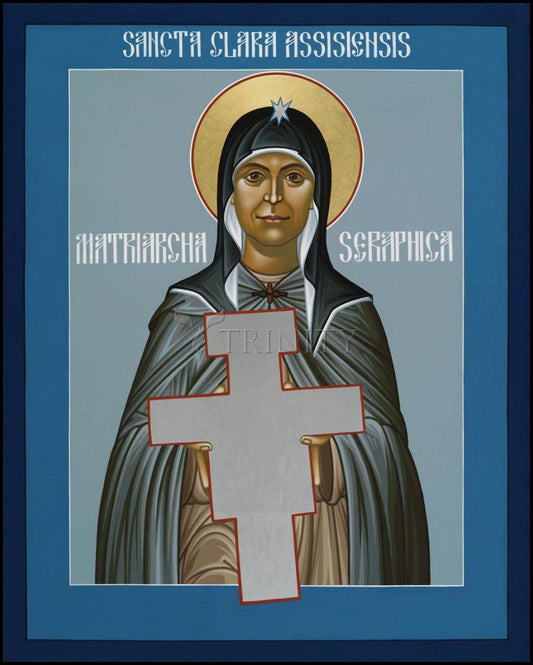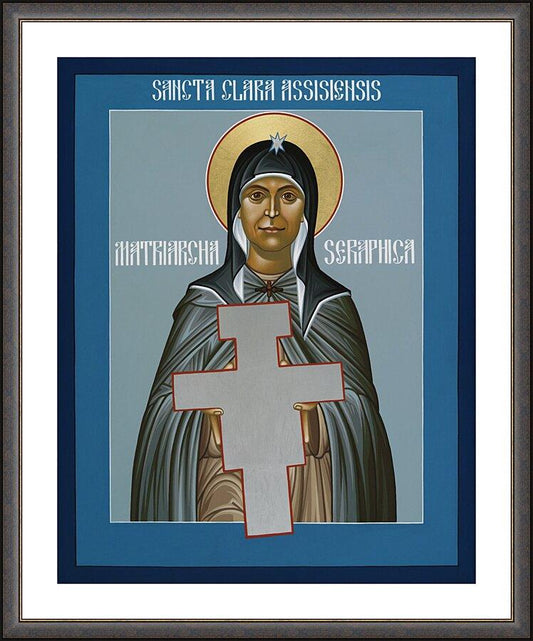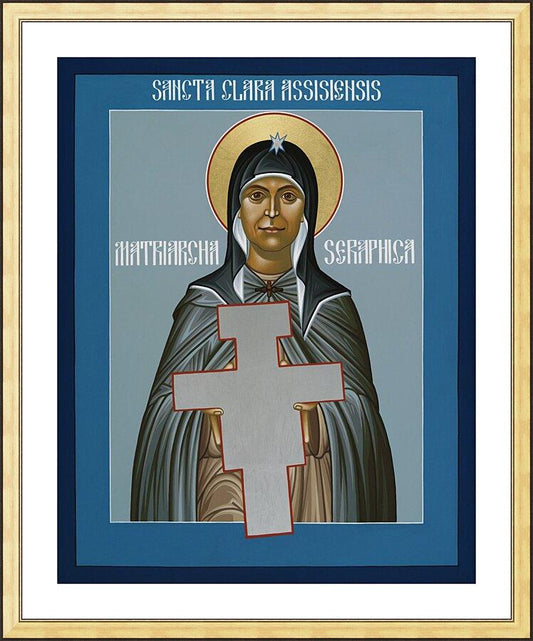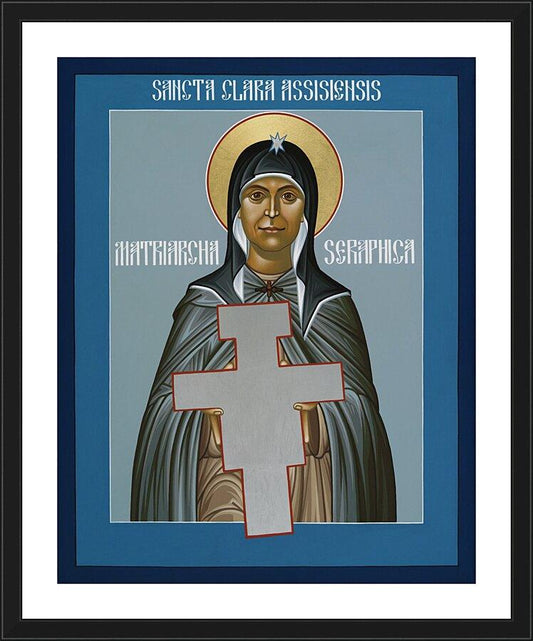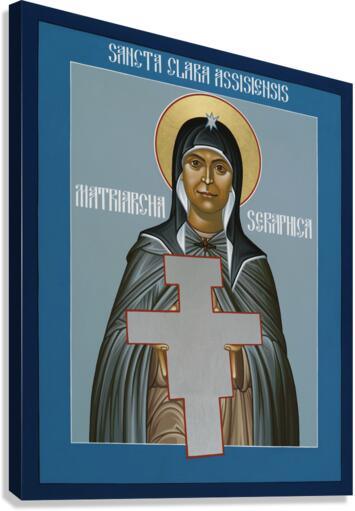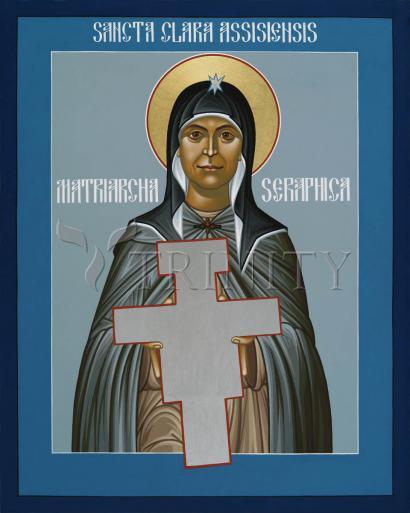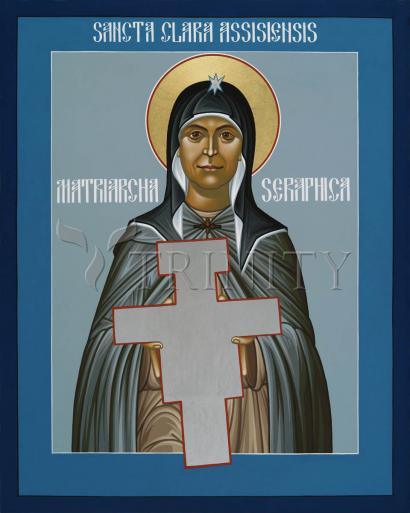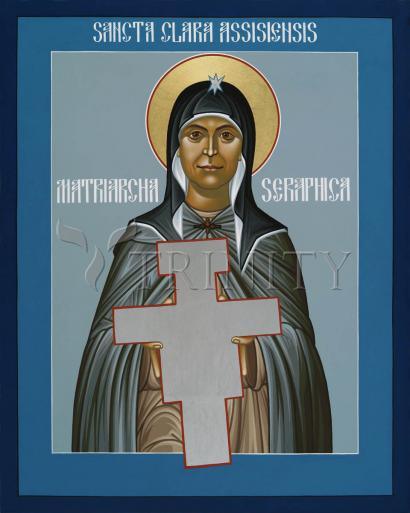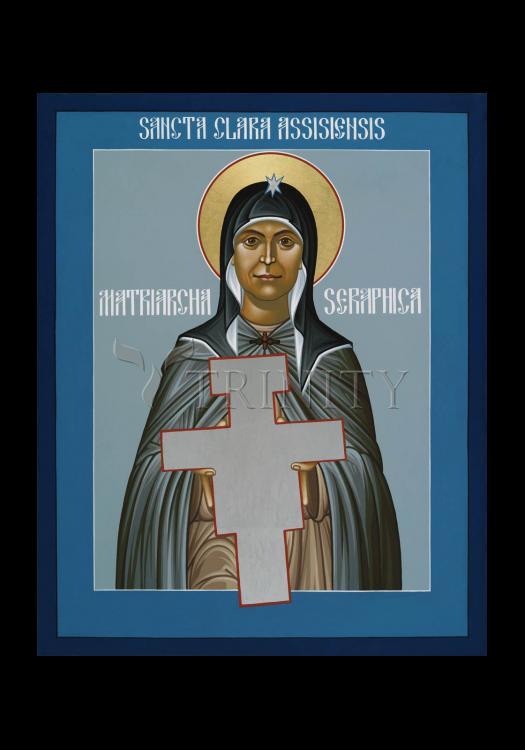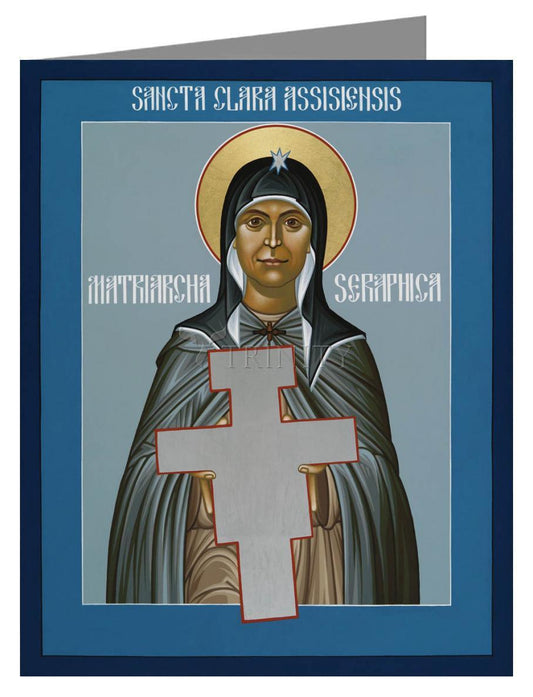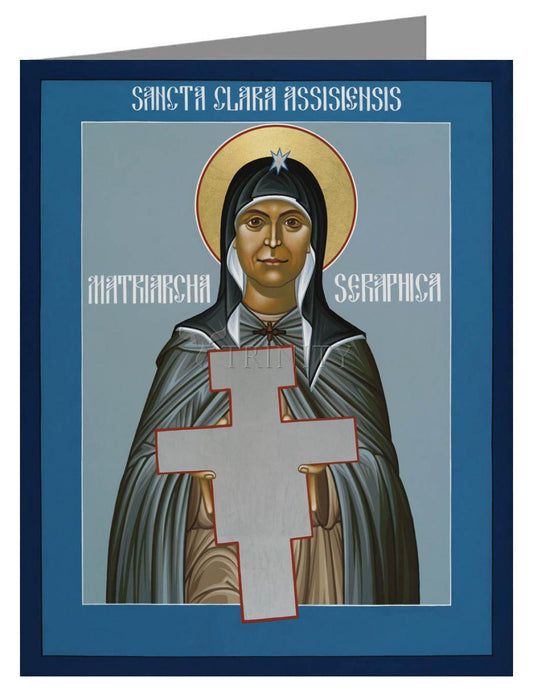St. Clare of Assisi was born into a wealthy Italian family but soon shunned her luxurious upbringing to embrace the life of piety and poverty. Inspired by the words of Francis of Assisi, Clare fled her home and joined Francis, establishing her own religious order. The group became known for their austere and devout lifestyle and for the power of their prayer, which is credited with saving Assisi from invaders twice. After Francis' death, Clare continued his work and broadened her own influence. Clare died in 1253 and was canonized two years later by Pope Alexander IV.
Clare was born in Assisi, Italy, in 1193 to wealthy parents, and was taught to read and write as well as spin yarn and do needlework. She had little interest in her luxurious surroundings (she lived in a palace), and influenced by her mother's religious devotion, Clare dedicated her life to God at an early age. She also showed early on that her calling would involve helping the poor, as she set aside food from her family table to give to the needy on the streets.
When Clare was 18, Francis of Assisi came to preach in the church of San Giorgio at Assisi. Inspired by his words, Clare asked Francis to help her in dedicating her life to God, and he vowed to do so. The following year (1211), Clare's parents chose a wealthy young man for Clare to marry, but she pointedly refused, fleeing soon after for the Porziuncola Chapel, where Francis received her. She took vows dedicating her life to God, and that moment, occurring on March 20, 1212, marked the beginning of the Second Order of St. Francis.
Clare's sister Agnes soon joined her, and they moved to the Church of San Damiano, recently rebuilt by Francis. It wasn't long before other women joined them, and San Damiano's residents, known for their ascetic lifestyle, became known as the "Poor Ladies." (Known as the Order of San Damiano, 10 years after Clare's death the order would be renamed the Order of Saint Clare.)
Clare became the abbess of San Damiano in 1216, and, while spending her days doing manual labor and praying, she began dedicating much of her time to changing the governing rule (established by the pope) of the order from the Benedictine spirit to one of the newly established Franciscan rule. (Two days before Clare died, Pope Innocent IV finally approved her request.) The order became known for its life of abject poverty and committed life of prayer, prayer that Clare used to attain worldly victories that are credited with saving Assisi on two occasions.
The first involved Clare raising the Host up in a window, thereby causing Frederick II's invading troops to fall back. In the second instance, Assisi was again under attack. Clare and her nuns prayed for the safety of their town, and a storm swept in and scattered the attackers.
Clare cared for Francis toward the end of his life and was with him when he died in 1226. Afterward, despite ill health, Clare continued to promote the growth of her order until her death in 1253. In August 1255, Pope Alexander IV canonized Clare, and today the Order of St. Clare numbers more than 20,000 sisters worldwide, with more than 70 countries represented.
Born: July 16, 1194 at Assisi, Italy
Died: August 11, 1253 of natural causes
Canonized: September 26, 1255 by Pope Alexander IV
Name Meaning: Bright; brilliant
Readings:
Go forth in peace, for you have followed the good road. Go forth without fear, for he who created you has made you holy, has always protected you, and loves you as a mother. Blessed be you, my God, for having created me.
"Saint Clare of Assisi
O wondrous blessed clarity of Clare!
In life she shone to a few;
after death she shines on the whole world!
On earth she was a clear light;
Now in heaven she is a brilliant sun.
O how great the vehemence of the
brilliance of this clarity!
On earth this light was indeed kept
within cloistered walls,
yet shed abroad its shining rays;
It was confined within a convent cell,
yet spread itself through the wide world.
"Pope Innocent IV
He Christ is the splendor of eternal glory, "the brightness of eternal light, and the mirror without cloud."
Behold, I say, the birth of this mirror. Behold Christ's poverty even as he was laid in the manger and wrapped in swaddling clothes. What wondrous humility, what marvelous poverty! The King of angels, the Lord of heaven and earth resting in a manger! Look more deeply into the mirror and meditate on his humility, or simply on his poverty. Behold the many labors and sufferings he endured to redeem the human race. Then, in the depths of this very mirror, ponder his unspeakable love which caused him to suffer on the wood of the cross and to endure the most shameful kind of death. The mirror himself, from his position on the cross, warned passers-by to weigh carefully this act, as he said:
"All of you who pass by this way, behold and see if there is any sorrow like mine." Let us answer his cries and lamentations with one voice and one spirit: "I will be mindful and remember, and my soul will be consumed within me."
"Excerpts from a letter to Blessed Agnes of Prague by Saint Clare of Assisi



